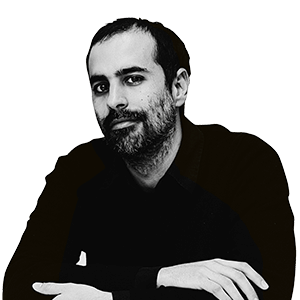"Leni Riefenstahl was a witness, and perhaps a catalyst, for a Nazi massacre of Jews."
Andres Veiel analyzes the figure of Leni Riefenstahl in the documentary that opens DocsBarcelona


BarcelonaPerhaps more than ever, the protagonists of the Nazi rise to power continue to be the subject of analysis and debate. This is the case of Leni Riefenstahl (Berlin, 1902 - Pöcking, 2003), the quintessential filmmaker of the Third Reich, who stars in the documentary that opens the film. DocsBarcelona This Thursday, the very day that marks eight decades since the end of World War II in Europe. Riefenstahl, by Andres Veiel (Stuttgart, 1959), dives for nearly two hours into the archives of the director ofThe triumph of the will and Olympia, a collection of more than 700 boxes of documents, letters, films, and nearly 200,000 photographs. "It was a challenge because she was very manipulative, and before she died, she cleared the archive of incriminating documents, so things were missing," Veiel explains.
One example is the record of an interview given in 1934 to Daily Express, the contents of which were completely undiscovered in Riefenstahl's archive. Veiel and his team found it in the newspaper's newspaper archives. In the interview, the director declared herself an enthusiastic supporter of National Socialism after reading Mein Kampf, a statement that contradicts her entire post-war discourse, in which she presented herself as an apolitical artist, detached from the ideological content of her films. They are particularly striking his television appearances from the 1960s onwards, in which a rebellious and unrepentant Riefenstahl denies any responsibility for Nazi war crimes. "The most interesting thing about the interviews is not her arguments, which are always the same and are lies, but the great support she received afterwards in the form of letters and calls from former Nazis, which she recorded," says Veiel. "The film is not only a portrait of Riefenstahl, but of the Germany of the 1970s and 1980s, in which a part of her returned to the part of the 1970s and 1980s. feeling proud of being German." innocence. But, of course, she wasn't innocent."
One of the accusations Riefenstahl pursued was that she personally witnessed the execution of 22 Jews in Konskie on September 10, 1939, during her brief stint as a war correspondent in Poland. She consistently denied it, entrenched in her ignorance of Nazi crimes. But Veiel and his team found a letter in the archives from an aide to Riefenstahl's ex-husband recounting the details of the massacre and attributing it to the military's literal interpretation of an order from the warden. "Leni Riefenstahl was a witness, and perhaps a catalyst, for a Nazi massacre of Jews," Veiel says. "She claimed to have only heard gunshots, but the letter is eloquent: Riefenstahl wanted to film the funeral of four German soldiers, and the Jews who were digging the grave were making the grave for her, making the grave for her, making the grave for her. The shooting began." Two weeks later, the director was no longer a war correspondent.
Tarantino and 'Olimpia'
Riefenstahl's legacy and her total refusal to accept any blame for complicity with the Nazi regime resonate in the arguments with which the German far right today claims the need to "turn the page" on Nazism and boost national pride. "A minority of Germans see her as a great artist, and they say: 'But look... Olympia!». And yes, it's true. She was a great editor, just look at the diving scene. Even Tarantino argues that Leni Riefenstahl is one of the greatest directors in the history of cinema, but aesthetics cannot be separated from ideology and politics. Adolf Hitler appears twenty-eight times during the first part ofOlympia"It's a tribute to Hitler," Veiel explains.
Riefenstahl's influence on today's world is also evident in the aesthetics of modern totalitarian regimes. "When the war in Ukraine began, Putin organized military parades, and formally, he was very similar to The triumph of the will: the angles with which they film Putin, the way they organize the masses... And the ceremony of the Beijing Olympic Games shared many elements with Olympia", says Veiel. The celebration of the beauty of perfect bodies in Riefenstahl's films is not the problem, the director points out, but rather "the contempt for the weak and imperfect that is at the root of supremacist ideologies, which, in order to reinforce the feeling of belonging to the nation, must turn everyone else into criminals and depraved people."
